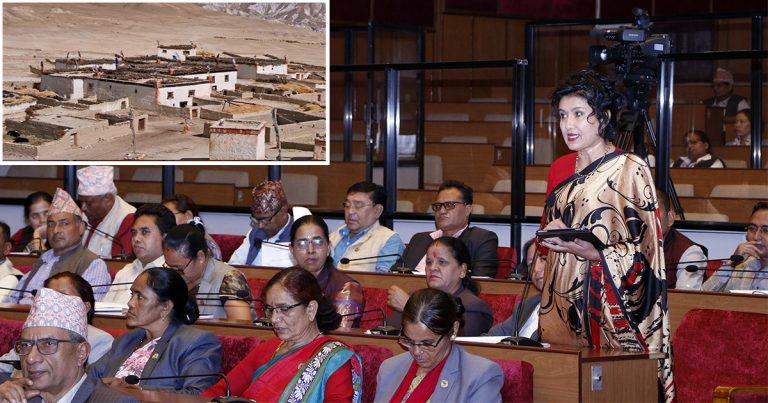
The Dengue Epidemic since its first 2019 incident in Sunsari, has spread to at least 56 districts across the nation, sparking lawmakers to call the epidemic a national emergency.
Spreading mostly along the Terai belt, the disease has also been seen in a few hilly districts. For example, this year a person from Doti died due to dengue – until a few years ago, let alone dengue, Doti didn’t even have a mosquito problem.
Furthermore, a news report by Republica also recently said ‘mosquitoes were being spotted in high altitude areas such as Lo Manthang as well’ – at an elevation of 3,480 metres. Concerned lawmakers in the parliament are demanding the government declare the epidemic a National Emergency.
Speaking at a meeting of the upper house on Wednesday, NC lawmaker Radheshyam Adhikari requested the Health Minister to declare a state of National Emergency. He urged the government to issue a circular to the public that the disease could be cured on time if treated on time.
Adhikari further added that the government should fix the price of the dengue tests as private hospitals are said to be overcharging.
Similarly, NCP lawmaker Kamal Oli also insisted on the role of three-level government for collaboration to tackle the situation. She asked the government to tackle it at the present and prevent its onset in the future.
The mosquito-borne disease was first reported in Dharan this year, moving west of the country gradually, and even towards high areas where the weather is unfavorable for mosquitoes to survive.
According to Shree Krishna Neupane, acting chief of Annapurna Conservation Area Project (ACAP), “while the flies and mosquitoes may have migrated in other people’s belongings, their ability to survive could be attributed to global warming.”
This is Nepal’s first dengue outbreak – previous years weren’t a fraction as bad as 2019.
However since people aren’t going to stop migrating and the earth is not cooling down any time soon – we might as well start preparing early in 2020 towards the prevention of the outbreak.





